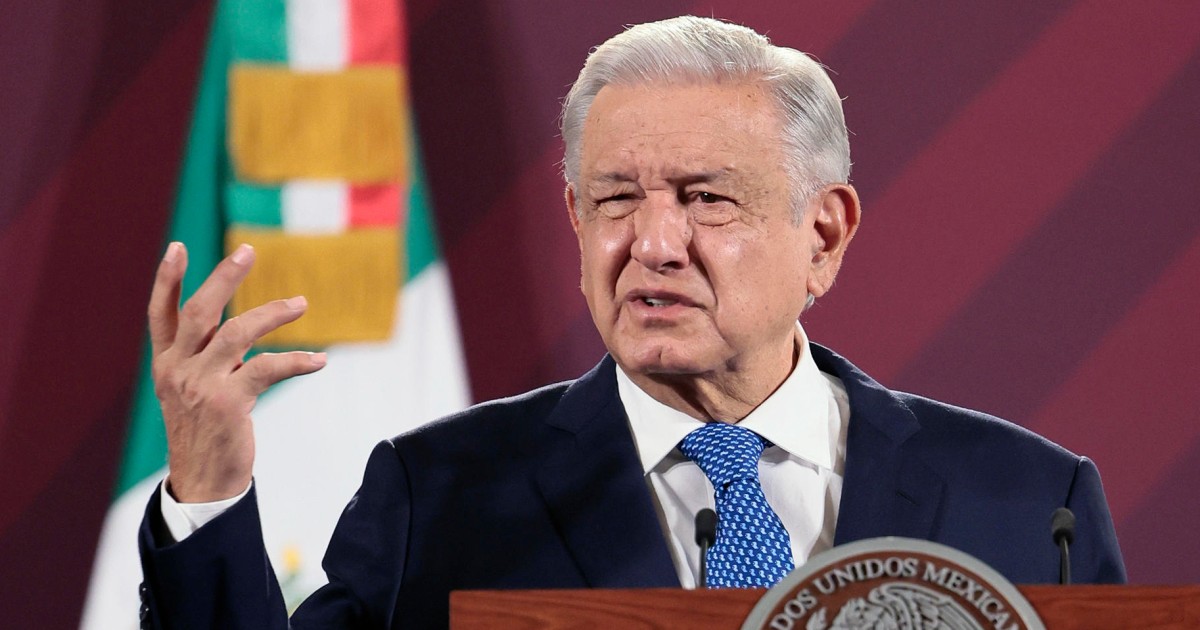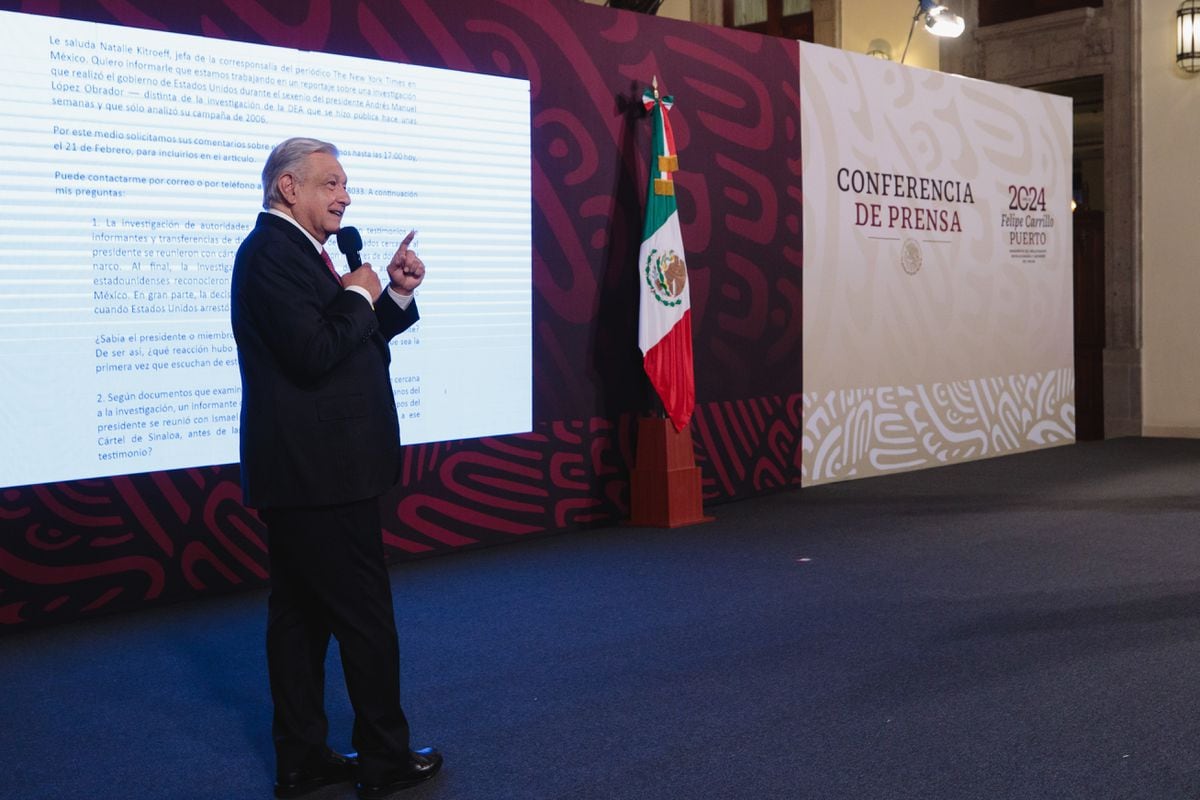The history of drug trafficking in North America is also the story of its prohibition, of the punitive machinery armed north of the Rio Grande, replicated in Mexico, whose effectiveness after so many years is more than questionable.
It is the great construction of our era: drugs are a public security problem, the world needs powerful anti-drug agencies to neutralize it.
Any attempt to change the paradigm has run into the sword of the guardian, the United States, manufacturer and exporter of hegemonic ideologies.
In
One Hundred Years of Spies and Drugs
(Debate, 2022), academic Carlos Pérez Ricart illuminates part of the great tsunami, the operational aspect of the doctrine in Mexico, embodied by agents and corporations from the northern neighbor.
For a century, United States government officials have been acting in Mexico against drug manufacturers and traffickers.
The arrests of Rafael Caro Quintero or Joaquín El Chapo Guzmán are just the latest examples of an uninterrupted operation, characterized, according to the author, by improvisation.
Divided into two parts, the book first discusses the origins of the presence of US agents in Mexico, the first border crossings, in the mid-19th century, to chase escaped slaves, the treaty that both countries then signed to punish the Apache nation on both sides of the dividing line… And also the origin of the production and trafficking of opium and marijuana, and later of cocaine.
The author dedicates the second part to four anti-drug agents, whose lives illustrate the history of misunderstandings that the war on drugs has been in North America.
Pérez Ricart talks about Al Scharff, a criminal turned customs agent during the First World War;
Joe Arpaio, the egocentric and racist sheriff of Arizona, who made a career in the DEA in Mexico in the 1970s and Héctor Berréllez, a cowboy-looking policeman who lived like a marquis on the Sinaloa coast for years and left records of the illegal practices of their Mexican colleagues.
But above them stands out, of course, the figure of Enrique Camarena, the touchstone of relations between the two countries, since his assassination in Guadalajara in February 1985. It was never known why he was killed, but it was known that Sinaloan traffickers based in the capital of Jalisco they did it, case for example of Caro Quintero.
There is no way to talk about the anti-drug operation in the hemisphere without resorting to his figure.
And that's precisely where he starts the talk.
Ask.
Camarena appears, you say, as a "vanishing point", an inevitable character.
Response.
Camarena is our Kennedy.
We think we know what happened, just like Kennedy.
I am fascinated by the spectacle around.
I thought I couldn't write this story without him.
That is why I wanted to narrate from what we all think we know, get into everything that was known about him and then separate narratives, ideas and realize that we know very little.
Q.
Very little?
R.
Everyone has used it to their advantage.
The DEA used it because at the time they were about to disappear.
The Mexican government tries to stop the activities of the DEA from that case.
A lot of journalists have made a career around him... And in reality it is a simple story that is built from coincidences.
He was not the most important agent, before his death they shot a superior, they persecuted others from the Guadalajara office... There are four or five more people who could have been killed.
And then, the facts indicate that they did not want to kill him, they do not put a blindfold on him for nothing.
His death is an accident and everything that is built towards it is fascinating, the diplomatic war… Camarena was the dead man who justified his existence.
Although his personal story seems boring to me, he couldn't start any other way.
P.
Before Camarena, Mexico hosted Joe Arpaio.
R.
His story allows me to enter into the constitutional racism of the war on drugs, the intrinsic racism of several of these agents.
Note that three of the four to whom I dedicate a chapter are migrants or first generation, as is the case of Arpaio, who is from an Italian family.
He exemplifies the anti-immigrant agenda very well.
He is a despicable character.
I was angry with him.
Q.
It shows
R.
I disliked him, I tried to be objective, but with him... Besides, his figure is well documented.
He is also a professional liar.
I would have liked to interview him, I tried, but he didn't want to.
He was no longer Sheriff, he was a candidate... he has always been a failure, even in the case of space flights [after his time in the DEA, Arpaio and his wife sold seats for future space flights].
I talked to people who knew him and I didn't know anyone who spoke well of him.
His times in Mexico are dark.
I have followed and documented many of the things he has said and none of it is true.
And yet he was head of the DEA here.
P.
Well, but it was a time, from what you write, when the US was paying more attention to Colombia than to Mexico.
R.
Yes, but it's Operation Interception, which puts Mexico in the crosshairs.
[In 1969, a couple of years before he launched his drug war and four years before the DEA was born, the Nixon administration ordered a thorough search of cars trying to cross the southern border].
Then, Mexico ceases to be important and then becomes important again.
But the first intelligence sharing programs were at that time and he had to manage them.
But, finally, Arpaio represents something else: the improvisation, the lack of professionalism, the amateurism of these agents... Arpaio is picked up from a local police.
A very poorly prepared guy.
Drug policy then and now is made by very poorly prepared, unprofessional agents.
The US foreign drug policy has not been planned, it is a set of improvisations.
P.
The case that you describe comes to mind, of Dr. Salazar Viniegra, head of toxicology and mental hygiene with President Lázaro Cárdenas (1934-1940), who proposed a more public health approach to the drug issue.
He wanted the State to keep the state monopoly on morphine, he fought to demystify marijuana, he even prepared a reform of the drug addiction regulation, which Cárdenas signed.
But the US government blackmailed him by suspending drug exports to Mexico.
That's it.
A.
Yes, yes.
But beware, the drug policy is not an imposition of the United States. Everything comes from an imperialist logic, the US officials had their implementation channels in Mexico, through conservative politicians.
Salazar gets hit by the newspapers, a lot.
That is why I say that it is not that Mexico Americanized its policies, it is a hybrid between its imposition and the empowerment of local actors.
The drug policy was not imposed, it was proposed, accepted and assimilated.
Carlos Pérez Ricart with his book, "One hundred years of spies and drugs", in hand. Mónica González Islas
P.
One of the last diplomatic accidents related to the war on drugs was the arrest of General Cienfuegos in Los Angeles a couple of years ago.
Later, the Mexican Prosecutor's Office estimated that the evidence that the US had collected was not even sufficient to prosecute him.
R.
It is that we see the United States as the
gold standard
in burden of proof.
It's not just Cienfuegos, it's Zuno [brother-in-law of former President Echeverría, linked to the
Camarena case
], Camarena's doctor [who tried to keep the agent alive during his kidnapping and later, US agents kidnapped him and took him to the US USA to prosecute him].
This shows that the monopoly of sloppiness when it comes to making cases is not Mexican.
Q.
One of the things that surprised me about the book is that the alleged revision of the agreement for foreign agents to act in Mexico, which triggers the
Cienfuegos case
, actually repeats what had already been approved in the 1990s! nothing has changed!
R.
The DEA agents have two ways to act in Mexico, the formal one, consular agents, which have always been more or less 50, and then the TDA, linked to offices in the south of the United States, above all, who do not respond to the central logic of the DEA operation in Mexico, but rather have specific objectives in the country.
It was very difficult for me to understand this.
Let's say the Calexico (California) office has a methamphetamine investigation in Mazatlan and sends their agents there to investigate.
These agents do not have permission, the Mexican government does not know.
And it may be that even the DEA operation in Mexico is unaware of their activities.
That happens all the time, often with conflicting interests.
That operation may conflict with another from the New York office… Even with antagonistic actors, those in Calexico may have informants from one criminal group and those in New York from another.
It is much less orderly than we think.
This lack of rationality generates violent dynamics.
I think a lot of the violence in Mexico comes from there.
I insist that the success of the DEA is the failure in Mexico.
Because their offices in San Diego or New York may be successful, but you leave a powder keg, because you leave fragmented groups and conflicts.
Q.
Does a world in which the DEA and similar agencies lose weight seem possible to you?
R.
The DEA is one of the last enclaves of opposition to drug reform in the United States. To the point that they reach the absurdity that, locally, smoking marijuana is allowed, but the DEA persecutes it.
The DEA is an authoritarian enclave, but it can be dismantled.
And it will be done when its political economy is attacked.
Much of the resources with which the DEA pays salaries, etc., is the narco.
They benefit directly from the motivations of their fight.
They are the main stakeholders in the ban, because it gives meaning to their existence.
The last thing they want is to live in a world without drugs.
It is the same as the Church, to understand us.
Without sin, it does not exist.
They need sin to exist.
As a result of that thought, at the end of the book I mention the case of Osiel Cárdenas, former capo of the Gulf Cartel.
The DEA catches him and he agrees to give, among other things, money.
And it is money not for the victims, but for them!
This book allows us to take a closer look at the concept of corruption.
I don't know if that concept reaches what I am wanting to name.
Because this is something else, although it is also the same.
It is not corruption in the sense that we use it.
But when a state agency takes advantage of the illegality to maintain or say that it maintains the legality, it is very serious.
That is why I want to talk in my next works about how the justice processes of the United States draw on illegality to build legality.
Maybe because peace is made of shit.
subscribe here
to the
newsletter
of EL PAÍS México and receive all the informative keys of the current affairs of this country





/cloudfront-eu-central-1.images.arcpublishing.com/prisa/SUXSGP2YZBHQLNK4QN5DDKB32U.jpg)
/cloudfront-eu-central-1.images.arcpublishing.com/prisa/BDM5SHUEO3DCZI5U6TA4BHKPYQ.jpg)


/cloudfront-eu-central-1.images.arcpublishing.com/prisa/6YVGDXFAWRX3CRBJPUPWBML5SI.jpg)

/cloudfront-eu-central-1.images.arcpublishing.com/prisa/KMEYMJKESBAZBE4MRBAM4TGHIQ.jpg)



